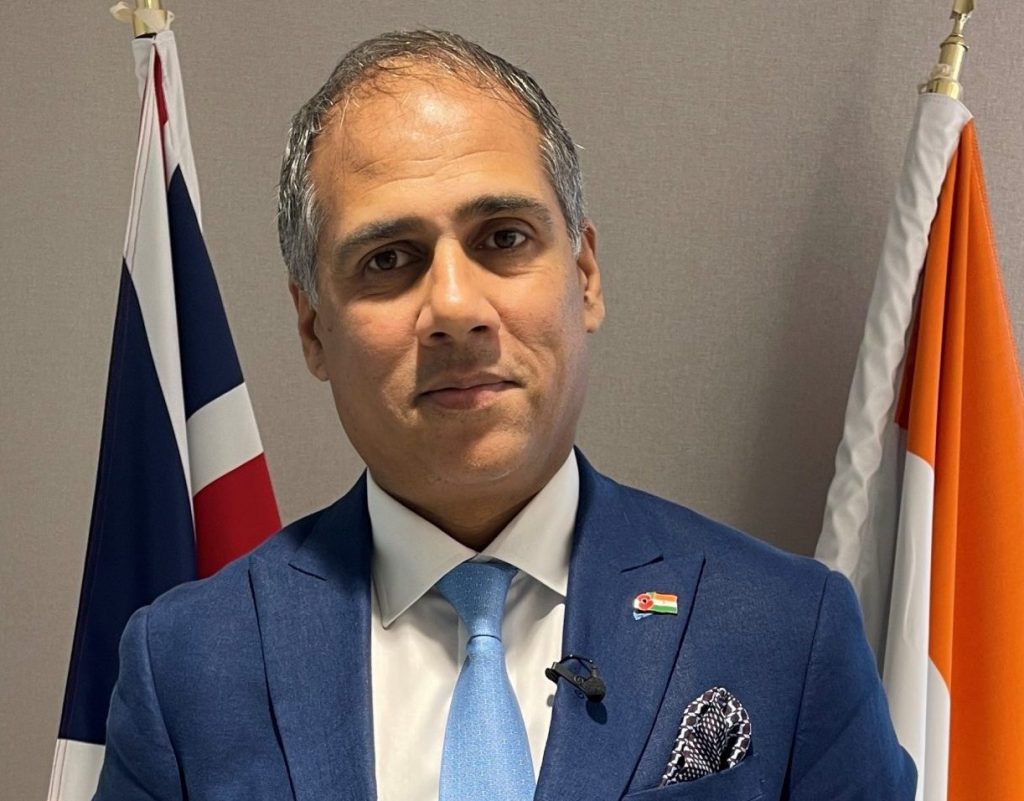
I write to you from India. In fact from Asia’s largest tech summit. I’ve seen companies in AI, quantum computing, cancer detection, and rocketry (India launches UK satellites btw), and today India had its first private rocket launch. Then there were companies in Advanced Manufacturing, advanced materials and of course cyber security (they do have hostile neighbours).
As India overtook the UK by GDP, the trajectory of the Indian economy is the same as its rockets – to the moon. We want some of that action in the UK. So would the FTA make a dent on FTSE 100 company valuations? Not in the immediate term of course.
A few months ago the FTSE 100 was pretty much at 2000 levels. It’s rangebound for a couple of decades and not an index I would buy into. The FTSE 250 would take you from 19k to 25k if it went from current levels to all-time highs. Around a 25-30% return. Even in 2 years that would be okay.
What about the specific impact on individual companies of the FTA? Or ETFs? Their market is one of the best performers of the year. I would not have an issue with someone having an Indian ETF for the long term but be careful what’s in it. Just having a few big listed Indian companies does not mean ‘India’.
I’ve seen ‘Asia’ investment trusts be mainly China and destroyed in their valuation – then you look at the ethnicity of the fund managers and you see why ‘Asia’ to them meant ‘China’ and why they kept getting it wrong. No thanks.
I think it would be a brave or foolish person who would bet on individual companies on the FTA alone. A Diageo? But not on FTA alone.
Back to FTA
Negotiations for the UK-India bilateral Free Trade Agreement (FTA) started in January 2022 with an end-of-year timeline. The two nations failed to agree on terms, and the FTA’s progress seemingly stalled for a while. But the ambitious trade pact received a much-needed impetus with Rishi Sunak’s recent ascension to power in the UK.
Greg Hands, the trade minister for Britain, stated last month that the UK has completed all major sections of the FTA, which he deemed essential to the UK’s economic revival. “A strong FTA can strengthen the economic links between the UK and India, boosting the UK economy by more than 3 billion pounds by 2035 and helping families and communities,” Business Standard quoted him as saying.
But is it all cut and dry, as some in business and political circles believe? As it turns out, that’s not the case.
Concerns regarding the FTA still abound
Alex Ellis, the British High Commissioner to India, is cautiously optimistic about the two nations reaching a consensus on the trade pact in the upcoming months after 18 months of back and forth. Businessmen and lobbyists strike a similarly optimistic note. In his conversation with ET Prime last month, Karan Bilimoria, a UK-based Indian businessman and a proponent of the UK-India FTA, was extremely hopeful about the trade pact coming to successful closure.
IP provisions
Humanitarian organizations have also attacked a leaked chapter of the FTA that concerns IP provisions. Doctors Without Borders has explicitly demanded the complete scrapping of the IP provisions, citing that the leaked chapter contains several harmful sections. This includes a contentious provision that mandates disclosure of all patents, which they claim, and DIT denies, would mean harder to acquire generic drugs and so higher NHS costs.
Seems like scaremongering by the Medicins sans Frontier as DIT has said they would not accept anything which would lead to higher NHS costs. UK laws for UK imports means UK patent regulations. I’m with the UK Government on this.
Andy Street, Mayor of West Midlands which is the UK’s second-largest destination for Indian FDI in the country, considers tariff reduction on goods “the single most important factor” of the UK-India FTA. But he also expects stiff resistance from Indian carmakers to lower import tariffs. But there is some proverbial silver lining as India has accepted the UK’s major demands for a reduction in tariffs on the import of Scotch whisky and provisions for higher quotas.
Given that average Indian tariffs are higher than those in the United Kingdom, the latter stands to gain considerably more from the former. Scotch whisky accounts for 90% of all the UK’s alcohol exports to India, despite the country’s steep tariffs on the beverage (150%).
Can Modi-Sunak deliver?
The UK-India FTA was discussed at length between India’s External Affairs Minister S Jaishankar and Britain’s Foreign Secretary James Cleverly during their meeting last month. It is in the interests of both countries to increase trade and labour mobility between them, so the United Kingdom is pushing for greater access to the Indian market for high-quality British goods.
Speaking at the Global Trade Conference 2022, a week later, Trade Minister Greg Hands remarked, “…our governments are making good progress in negotiating an ambitious FTA which could boost trade between us by as much as £28 billion.”
Even if the two nations ink the FTA in 2023 as expected, it could be radically different from the leaked draft.
Alpesh Patel OBE
This article is for educational purposes only. It is not a recommendation to buy or sell shares or other investments. Do your own research before buying or selling any investment or seek professional financial advice.



